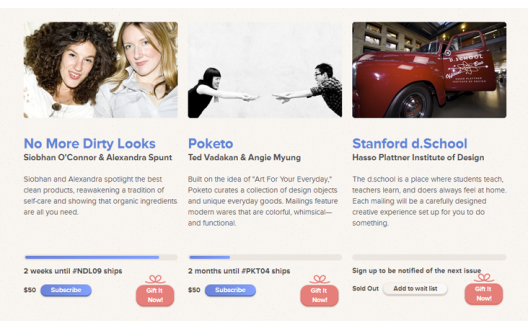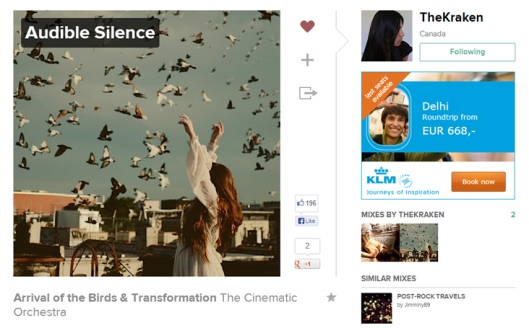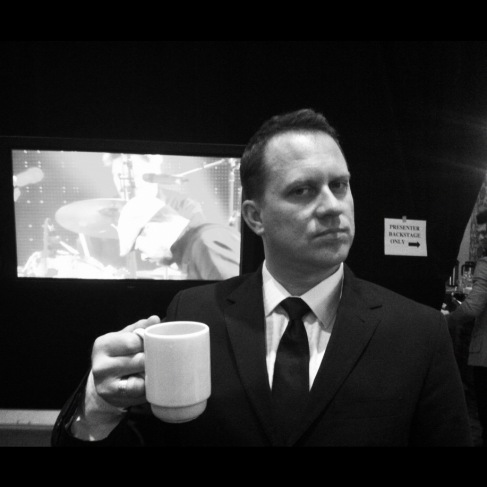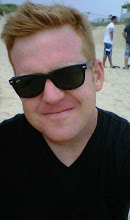Sunday, May 5, 2013
Click here for Cristi Hegranes’ exclusive interview with Forbes magazine.
Sunday, May 5, 2013
Click here for Cristi Hegranes’ exclusive interview with Forbes magazine.
There are certain things in life we take for granted. Flip a switch, the lights go on; our refrigerators and other appliances work and our tech devices get charged. But what if the electricity went out, not just for a day or two or a period of weeks, but months or even years? How many of us could survive such a catastrophe?
Our civilian electric grid on which we all depend is vulnerable—not only to cyber-attacks and physical assaults, but to something called electromagnetic pulse (EMP). At a Senate hearing on the electric grid this past July, here is what Sen. Ron Johnson, Chairman of the Homeland Security and Governmental Affairs Committee, said: “The purpose of this hearing is basically to pull our heads out of the sand. This is a threat that is real, and we need to acknowledge.”
There are two ways that electromagnetic pulse can be generated with the potential to take down our grid. Neither way is science fiction. First, a major solar storm can generate enough electromagnetic pulse to seriously damage or destroy our vulnerable grid. In 1859, a big solar storm hit Planet Earth. But as experts have noted, that was back in the days of the horse & buggy and telegraph. Another solar storm occurred in 1921. And there was a near miss in 2012 when a solar storm hit Earth’s orbit. Two years later, Daniel Baker of the University of Colorado, wrote the following in NASA Science: “I have come away from our studies more convinced than ever that Earth and its inhabitants were incredibly fortunate that the eruption happened when it did. If the eruption had occurred one week earlier, Earth would have been in the line of fire.”
Our grid is also at risk from a man-made attack from a rogue regime like Iran or North Korea. All they need to do is place a nuclear device on a missile and explode it high above our atmosphere. That too could generate enough electromagnetic pulse to take down our grid. And after a period of months, or a year or more without a fully functioning electric grid, a large number of people will begin to die from a lack of food, water, resources. James Woolsey, former CIA Director under President Bill Clinton, warned of the dire consequences of a high altitude EMP attack at that recent Senate hearing: “One estimate is that within a year or so, two-thirds of the U.S. population would die.”
In December, 2014, with a bi-partisan vote, the House of Representatives passed the Critical Infrastructure Protection Act (CIPA) to protect the electric grid. The Senate still needs to approve legislation and the President to sign it. We need to ask our elected representatives, why after 2 Congressional Commissions years ago heard numerous experts make the case for securing the grid, are their recommendations from 2008 still waiting to be adopted?
In 2011, Democratic Congresswoman, Yvette Clark of N.Y. and Trent Franks, Republican of Ohio, co-wrote “Protecting Our Electric Grid” for politico.com. They said “we must act now and decisively. We cannot wait for the clock to run out on such grave threats when they are now predicted by all relevant U.S. agencies.” They went on to write that “with scientists and engineers now advising that the cost and complexity to bring this problem under control is modest, our course is clear. We cannot, and must not leave our nation vulnerable. We must secure our electric infrastructure now.” Those words from 2011 have yet to be heeded.
We can’t afford to wait any longer, or just cross our fingers and hope there won’t be another big solar storm. Experts say they happen about once every 100 years, so we are due. And are you willing to bet the health & well-being of every family in America that a country like Iran, whose leaders shout “Death to America”, won’t ever take advantage of our vulnerable civilian electric grid? Some states like Maine and Virginia are not waiting for the federal government to act. They have already taken steps to secure their grids. So what can you do? Sign the petition which The Good for You Network has created on www.change.org Send it to your Senators, Congressmen, to the President, the Governor of your state and state legislators. Ask 11 or more of your friends & family to do the same.
We had one wake-up call on 9/11 that we cannot ever forget. Let us all make a commitment here and now to do everything we can to prevent the take down of our electric grid and preserve the quality of life that has long made America a beacon of light and hope to a world dearly in need of it. May America’s light always shine bright!
#ShieldTheGridNow
The post America’s Electric Grid is Vulnerable appeared first on The Good For You Network.
When I see ‘Chef’s Pick’ on the menu, quite often I am tempted to pick it for my order. As a teenager, I used to wait for the arrival of Reader’s Digest every month. There is something weirdly beautiful about things that are handpicked. Even as internet giants such as Google and Amazon, strive to make their recommendation engines smarter, the good old handpicking thrives in various forms as competing alternatives. Let’s look at four interesting examples:
MistoBox – MistoBox enables people to discover coffee from around the world, like never before. The company chooses and sends four coffee samples every month to its subscribers, and they call themselves coffee geeks who know the difference between the merely-good and the truly-special coffee roasts.
Quarterly – Internet provides us with innumerable means to stay tuned with the people we admire. Quarterly adds a new dimension to the way we connect with those people. The company provides a platform through which, every quarter subscribers receive actual items that tell a compelling story crafted by the person they admire, and subscribe to.

8tracks – The founders of 8tracks believe that handcrafted music programming trumps algorithms. The website enables users to discover playlists created by DJ’s/other users, and to create their own playlists which others can listen to. Listeners get a unique blend of word-of-mouth sharing and radio programming — long trusted means for music discovery.

Scoop.it – Like the founders of 8tracks, those of Scoop.it also believe that algorithms alone are not enough at organizing the web’s content in a smart, meaningful way and that humans could do a much better job at it. The website enables users to curate web content and share it with others.
As you may have noted, the four examples presented above represent different scope, in terms of things that are curated, and the people who curate them. The possibilities are many. So look around and see if you can curate something yourself or create a platform for others to curate something in a meaningful way. There may be a business opportunity out there. Good luck!
To stay tuned with me Follow @nbhaskar888
The post Send a Good For You Message appeared first on The Good For You Network.

Today’s interview is with Jeff Leake, the director of music programming for Sirius XM Canada and host of The Leak In Review. I met Jeff at a music industry panel in Victoria, BC. He’s a knowledgable guy, a funny guy and most definitely a very well connected guy!
We got together at his hotel to do the interview and drink tea. Rock n’ roll.
I am always interested to ask questions about what people do but I’m especially interested to find out how they got where they are. The more I have looked at successful careers the more overlaps I have found with the types of events that lead to success. To be more specific, the types of opportunities that have been the stepping stones to success.
Finding success in music or business is all about the accumulated experience and knowledge that allows us to recognize and seize the opportunity that ultimately results in what the general public observe to be “overnight success.” I was curious as to what those opportunities had been for Jeff. With his experience and first hand stories to tell about artists and their careers I was curious as to what advice he could offer for those looking for a career in music.
In our interview we talk about how to get your music on the radio, how to submit it, the importance of having a story, how to incorporate airplay into your overall strategy, the importance of follow up, but more importantly when to approach radio and why. Jeff also talks about networking and being ready and willing to take opportunities when they present themselves no matter how big or small they may seem.
Enjoy!
Aaron Bethune. Music Specialist. Creative Collaborator.
www.playitloudmusic.com www.abovethenoise.ca @playitloudmusic
Interview with Jeff Leake
To listen to Jeff’s show: Jeff Leake In Review
![]()
Sometimes when two commercials love each other very much, they get together and spawn a radioactive garbage fire that spews flaming jellied gasoline everywhere and kills all the grass in your yard. Long story short, you have about 30 minutes to watch this video before we have to bury it deep in the Earth’s core for humanity’s well-being.
The Credits:
Ad Agency: Wieden + Kennedy Portland
Director: Nick DenBoer
Editor: Nick DenBoer
Sound Mixer: Nick DenBoer
Art Director: Matt Sorrell
Creative Director: Jason Kreher
Copywriter: Jarrod Higgins
Interactive Producer: Eddye Borgese
Interactive Producer: Teresa Lai
Interactive Producer: Mike Davidson
Business Affairs: Dusty Slowik
Account Management: Madison Savary
Copywriter: Jarrod Higgins
Company: Fresher Collection
Copywriter: Nick Morrisey
Company: Leatherman
 Today’s interview is with Gregg Stewart, a marketing expert with over 13 years of first hand experience in the entertainment industry.
Today’s interview is with Gregg Stewart, a marketing expert with over 13 years of first hand experience in the entertainment industry.
As the Associate Director, Music Marketing Strategy & MuchFACT he’s the main point of contact for music industry partners at Bell Media Inc. when it comes to music and entertainment.
Gregg leads the music team in weekly committee meetings, promo opportunities, communications, production, programming, appearances on all media platforms across their brands. Brands include MuchMusic, MuchMore, MTV, MTV2, MuchLoud, MuchVibe, MuchRetro, Juicebox, The Loop, E!, at broadcast and for all of their digital offerings.
Gregg also leads the MuchFACT team which is a funding board that supports Canadian music through content creation for all media platforms.
He was instrumental in the launch of MTV in Canada in 2006 and also grew the audiences of the major shows by 40% from year one! He has been involved with MTV events nationally from Wakefest in Kelowna to World Ski and Snowboard Festival in Whistler.
This interview covers topics including:
How to get into the music industry
Building your value
Instant gratification and YouTube
New music discovery
Making the most of music placements
Building relationships and following through.
SXSW and beyond
Factors that count beyond the music
Timing
How MuchMusic and MTV formulate their own countdown chart and what factors in
MuchFact and creative pitching
Gregg is a very knowledgable guy and offers some great insight. Get out your pens and paper and take notes!
Aaron Bethune. Music Specialist. Creative Collaborator.
www.playitloudmusic.com www.abovethenoise.ca @playitloudmusic
Interview with Gregg Stewart:
To visit Gregg’s blog:
Good Music Is Good Music
The post Use our Boardroom to Be the CEO of Your Own Well-Being appeared first on The Good For You Network.
Never doubt that a small group of thoughtful, committed citizens can change the world. Indeed, it is the only thing that ever has. — Margaret Mead
And I can find the joy only if I do my work in the best way possible to me. But the best is a matter of standards — and I set my own standards. I inherit nothing. I stand at the end of no tradition. I may, perhaps, stand at the beginning of one. — Ayn Rand, The Fountainhead
Each of us has to find out for ourselves what is permitted and what is forbidden – forbidden for him. It’s possible for one never to transgress a single law and still be a bastard. And vice versa. Actually, it’s only a question of convenience. — Hermann Hesse, The Story of Emil Sinclair’s Youth
I’ve always rejected being understood. To be understood is to prostitute oneself. I prefer to be taken seriously for what I’m not, remaining humanly unknown, with naturalness and all due respect. — Fernando Pessoa, The Book of Disquiet
Let’s just say I was testing the bounds of reality. I was curious to see what would happen. That’s all it was: curiosity. — Jim Morrison
You never change things by fighting the existing reality. To change something, build a new model that makes the existing model obsolete. — Richard Buckminster Fuller
The artist’s job is not to succumb to despair, but to find an antidote for the emptiness of existence. — Midnight in Paris (movie)
The heart has it reasons of which reason knows nothing. — Blaise Pascal
Do you have a favorite quote which goes with the theme? I would appreciate if you share it in the comments.
To stay tuned with me Follow @nbhaskar888
Thomas Heymann, Executive Director of the Sepsis Alliance noted: “The fact that they said Patty Duke’s cause of death is sepsis is relatively new. It very often would have been left as a complication of surgery or an infection. But it’s not a complication–it’s sepsis.
This is how the CDC describes sepsis: “Sepsis is the body’s overwhelming and life-threatening response to an infection that can lead to tissue damage, organ failure and death.”
Note: Any infection in any part of the body can lead to sepsis, which is why it’s so important to immediately seek medical attention. But because the symptoms of sepsis are similar to other conditions, it may not be easily diagnosed.
And sepsis doesn’t just affect the elderly or those with weakened immune systems. Rory Staunton was just 12 years old when during gym class he cut his arm. But a visit to his doctor and then NYU Langone Hospital’s emergency room did not lead to an initial diagnosis of sepsis. The pain in his leg, vomiting and fever were reportedly attributed to dehydration and an upset stomach. After receiving fluids and Tylenol, he was sent home. By the time he was finally hospitalized, it was sadly too late to save him from sepsis. NYU Langone ended up changing their discharge procedures, and the New York State Legislature subsequently passed “Rory’s Regulations” to require hospitals to check for infection.
The CDC advises that if you have any symptoms of an infection, tell your doctor: “I am concerned about sepsis.” As Dr. Craig Coopersmith, Professor of Surgery at Emory University School of Medicine. points out: “If you get sepsis, you have a higher chance of dying than if you have a heart attack, stroke or trauma. There is no question that increasing awareness of sepsis would save lives.”
With that in mind, Rory’s parents founded the Rory Staunton Foundation for Sepsis Prevention, as a way of helping other family’s to avoid the heartbreak of this too often deadly condition. It also honors the memory of their exceptional son, who it should be noted, accomplished more in his short time here on Earth than some do in a lifetime. Just read Maureen Dowd’s 2012 column on The Boy Who Wanted to Fly.
MSN, 3/30/16
The post Patty Duke Died Of The Most Common Condition You’ve Never Heard Of appeared first on The Good For You Network.